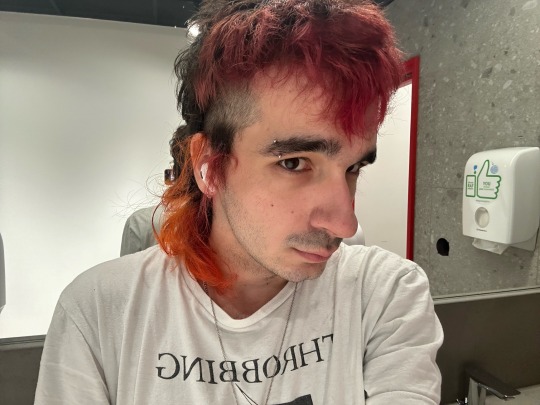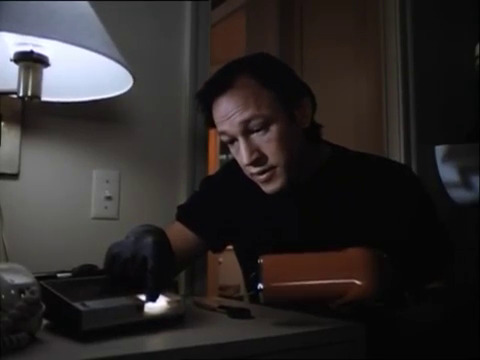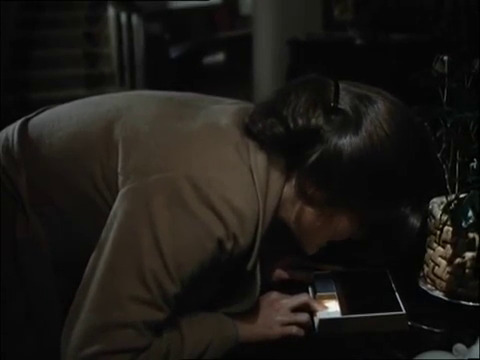#intimacy disorder
Text


returning to the office at my silly corporate job after the ritualistic art performance we had with a bestie of mine at a FETISH party (the performance itself was the most asexual/platonic shit ever) during a lunar eclipse, that caused me to spiral into a three day bender as I met a rly cool lowkey schizo??? guy that I cuddled with while kholing and merging into one person + actually opening up about my feelings for the first time in front of someone I barely know wait idk where I started with this ... oh yeah... returning to the corporate goofy office after all of this feels like a datura trip honestly wtf am I doing here who are these people even lmao
#lunar eclipse#lunar eclipse 2024#libra#aries#thelema#throbbing gristle#NWW#nurse with wound#coil#art performance#corporate#corporate goth#idk what im doing here#twink flame#soulmate#merged#ketaminechic#dimidedikov#platonic#celibate#cuddles😍#ace#intimacy disorder
3 notes
·
View notes
Text
INTIMACY DISORDER TREATMENT AND COPING STRATEGIES
Life can be pretty lonely if you have an intimacy disorder. Your disorder doesn’t allow you to truly get close to others. You keep your emotions guarded and people at arm’s length. But you can overcome this loneliness and lack of true connection with intimacy disorder treatment and coping strategies.
Understanding Intimacy Disorders: Definition and Examples
Intimacy is “a close, familiar, and usually affectionate relationship with another person or group.” True intimacy allows us to feel seen, known, and accepted, and to provide that to one another. An intimacy disorder is the inability to be close to someone else and the feeling of acting within a fake persona rather than an authentic self. There are also various intimacy disorders since there are numerous ways to be intimate with someone else. Most, if not all, intimacy disorders can be tied back to unresolved past trauma.
Types of trauma that can cause intimacy disorders include:
Physical Trauma. Physical abuse by a stranger or someone you know well.
Emotional Trauma. There are many types of emotional trauma, including negativity, belittling, and the constant presence of high-stress levels.
Sexual Trauma. A stranger or someone you know can perpetrate this unwanted sexual contact.
Betrayal Trauma. Being betrayed by a person you trust. The betrayed person may doubt their judgment and ultimately not trust anyone else anymore. This outcome may also be a byproduct of any of the above types of trauma.
While you might think sex addiction is the only kind of intimacy disorder possible, there are multiple classifications that can afflict people. Most of them stem from past trauma.
Other types of intimacy disorders include:
Sexual Anorexia. This disorder is an obsessiveness with avoiding sex. It involves a common history of trauma and toxic relationships with a parent.
Love Avoidance. Marked by a desire to stay in control of the frequency and intensity of emotional connection, this intimacy disorder is indicated by exhibiting a “bachelor for life” persona, as well as many intense on-and-off relationships.
Love Addiction. Those with this type of intimacy disorder can’t balance being smothered or abandoned by a partner. Unfortunately, they tend to select an unhealthy partner because healthy relationships can cause them anxiety.
Sex Addiction. Like sexual anorexia, this intimacy disorder can stem from a history of trauma or toxic relationships. It drives a person to constantly seek sexual gratification to overcome or cope with negative emotions.
Intimacy Disorder Treatment and Coping Strategies
Now that we’ve defined intimacy disorders and discussed those conditions caused by adverse experiences and trauma, it’s time to turn toward what’s possible and how to work toward healing and recovery.
Coping strategies to consider:
Find Places in Your Life to be Authentic. Find a safe person or group to talk with about the feelings of loneliness and isolation where you can feel supported and heard.
Turn Toward Jesus. Intimacy disorders often affect your relationship with God, causing you to see him as cold and distant or dangerous and wrathful. Examine this, am I projecting my traumas onto God? If so, engage with the Jesus as he represented in the Gospels. Meditate on the Parable of the Prodigal Son or the redemption of Peter after his three denials. How does Jesus really feel about those who struggle?
Have Some Self-Compassion. Think about yourself as a child. What did they want? Who did they want to be? What kind of relationships did they need? Have compassion for the child. You can learn to care for yourself now as adult in ways that were impossible then.
Look At Your Past. If you can, think about a simpler, more pleasant time before an intimacy disorder took hold. Whether it’s the earliest days of a wonderful relationship with a loved one or your faith in Jesus Christ, remind yourself of what you had, how you felt, how good life was, and how it could be again.
Set Goals and Review Them. Take stock of your situation, setting and regularly reviewing your goals for your mental, physical, and spiritual well-being. Remember that you should use your goals as things to strive for. You need to work on your mental and physical health and your relationship with God.
But you don’t have to limit yourself solely to coping strategies for an intimacy disorder, especially if you’ve tried repeatedly to no avail to manage it. Professionals are waiting to help you. You just have to ask.
Intimacy disorder treatments include:
Group Therapies and Support Groups. You can find a men’s group for discussing and dealing with intimacy issues to help you communicate your concerns with others who are also recovering.
Speaking with a Pastor. Though clergy specialize in helping people draw closer to God, many of them also have specialized training in dealing with relationship and family issues. And if your pastor doesn’t have that training, most likely, they can recommend a professional counselor who does.
Professional Treatment. You can seek help from a mental health professional through regular counseling sessions or a residential treatment program to help you cope with unresolved trauma and heal your intimacy disorder.
Willpower can help you deal with your problems, but it can only take you so far. You don’t have to deal with your issues alone. There’s no shame in reaching out for help.
How Boulder Recovery Can Help
Boulder Recovery is here to offer the help you need. We’re a Christ-centered, Scripture-based, and clinically innovative men’s program specializing in treating intimacy disorders.
With our 14-Day Men’s Intensive, you’ll be able to address the trauma that can cause various intimacy disorders by learning techniques to help heal trauma and attachment issues.
You should have no fear or shame in reaching out for help. Get in touch with Boulder Recovery to begin your road to healthy relationships.
Source: https://beginagaininstitute.com/christian/intimacy-disorder-treatment-and-coping-strategies/

0 notes
Text
ASPD: The Desire for and Run from Intimacy
This post will only contain my personal opinion and experience. It may not be applicable to all other people with ASPD and may likewise be relatable to people who do not have it.
I am only going to be talking about emotional intimacy, but this post is definitely also applicable to the other type of intimacy!
I'll make myself pretty vulnerable in this post, by discussing my personal experience, so you better not make me regret that!
Abbreviations:
ASPD = Antisocial Personality Disorder
ASPD is a disability caused by prolonged childhood trauma (with many possible variations), that develops in order to protect the brain from said trauma, or rather to help the brain deal with it in some way!
While the consequences of this in the context of intimacy, look different for every person with ASPD, many do report: a difficulty with developing bonds, having problems trusting people & giving away control, losing feelings for people quickly and abruptly/getting "bored" of people, responding extremely to arguments, having problems dealing with peoples emotions/ problems with being close to people etc.
This may be due to a variety of factors, but does often tie back to having no or few positive experiences with intimacy, having not learned how to exist in relationships properly/a lack of being socialized, not having the necessary prosocial emotions and mechanisms to deal with it and other similar things.
While this causes some people with ASPD to develop a brain, that does not have a need for emotional intimacy at all, others develop a brain, that craves the emotional intimacy it has been denied, but which will also fight said intimacy at every turn.
Thats as much generalized info as I can give you, as the exact representation of this is highly individual, but I will offer my personal experience on the following slides!
What you need to know is that I was accidentally neglected for huge parts of my childhood and teens and did not get my emotional and social needs met most of the time, while also knowing that my parents were theoretically capable of that, as they were giving everything I lacked to my sibling.
This caused me to grow up with a burning desire for intimacy, while being disappointed by people time and time again, failing to actually develop the things needed to experience this intimacy and partially growing to resent it and viewing it as "weak" and "bad".
Ever since then I have been stuck in what I like to call the "ASPD stages of running". Theres different points in getting close to people (in any nature of a relationship), that'll send me running and feeling like I am "weak" for wanting it, or as if being close to people is the worst thing that could happen.
The stages (simply put) are:
1. Desiring/Daydreaming about my dream relationship
2. Looking at peoples relationships/Looking at people with the intent of getting closer to them
3. Talking to people (online or irl)
4. Getting closer / being friends with people
5. Being friends with people for longer
Optionally:
6. Getting so close that a romantic relationship may happen
7. The moment of getting in the relationship / the days after
8. Being in the relationship for a bit
At any of those stages, I'll very likely have one or multiple moments where my ASPD will try to get the better of me and will try to convince me to just run away, drop contact and never talk about it again. Even just admitting to this and talking about it is hard as fuck, because it is so deeply ingrained in my brain to see emotional intimacy as a weak and dangerous thing.
What this will look like exactly really depends on the person and situation, but things that have happened in the past were:
• blocking the person and everyone I am friends with and pretending I am no longer alive
• my brain fixating on their faults in order to give me a good reason to hate them so I don't get closer to them and can hold them at arms length
• responding less often/more dryly or ignoring messages entirely
• not replicating the energy of the conversation/relationship
• staging an incident so I ruin the relationship
• running at the first signs of a disagreement
• avoiding people when they are emotional
• feeling uncomfortable around people as a whole => isolating
• beating myself up about letting it happen again
• impulsively bumping the relationship to another stage, just to immediately regret it (in a "fuck that has consequences" way)
• shutting off all my emotions, dissociate or otherwise make sure to stop the feelings (or just lose them automatically)
To put it in a shorter and more simple way, I'll usually either get the fuck outta there, or make sure to change the relationship/my personal position in the relationship to a more comfortable and less vulnerable and intimate level. This may also just look like me shutting off, becoming distant, or seeming mad, when all I am is overwhelmed by the intimacy and grossed out that I actually need and desire that.
As you can possibly imagine, that is not the most useful thing, as it causes issues in relationships, cuts friendships short and makes dealing with people a lot harder!
The most frustrating thing about this for me though is, that even if the most perfect friend or partner came along and even if the relationship would work at first, I am very very likely to crash it against the wall, simply because my brain cannot handle having the things, that it needs and desires.
It desires a hug and runs from the one who offers it.
It needs help and bites the hand that does.
It needs love and gets grossed out by whoever offers it.
It wants attention and can't handle it when it gets it.
It wants gifts, but doesnt know what to do when it gets them.
Whatever it wants, it can't have, so it keeps wanting, keeps yearning, keeps desiring and has to watch itself be unable to accept any of it.
And if that sounds painful, thats because it is.
Its a vicious kind of pain when you have to watch yourself ruin yet another thing, because your brain can't handle it, while you scream at it in frustration to get its act together, because it also is everything you desperately need.
ASPD sucks when it comes to intimacy and it especially sucks when it comes to talking about it, or being honest about these problems. It developed to protect me from being too "weak" to deal with the trauma and now its practically preventing me from showing any "weakness" or seeking out what previously hurt me. Which wouldn't be this bad, if I didn't still have this kid in me that just wants to be loved and daydreams about all the things, the ASPD hates.
When your shell disagrees with your core and you're not strong enough yet to break your shell, what does that really leave you with, other than curling up into a spiky ball and letting the shell do its job? I know I still need the protection, but I wish it wasn't actively preventing me from learning to live without it.
First posted on my instagram (same @)
#actually aspd#aspd#mental health education#antisocial personality disorder#mental health#antisocial#aspd awareness#aspd feels#aspd thoughts#aspd things#aspd mood#intimacy
183 notes
·
View notes
Text
Is it just me or is anyone else absolutely terrified of any and all forms of intimacy???? like when I had my first kiss, I wasn’t excited or giddy, I was literally shaking with anxiety. Idk why. Like I was so worried that I wouldn’t know how to kiss or that the kiss would be bad and it would be the one thing to send this person off.
Oh. I see…this is an abandonment issues thing. Of course. It’s always the abandonment issues
#abandonment#abandoned#abandonment issues#daddy issues#childhood trauma#on childhood#mentally disordered#mentally unstable#actually mentally ill#mentally tired#mentally fucked#mental illness#intimacy issues#scared of intimacy#scared of love#love is scary
76 notes
·
View notes
Note
Aroace/intimacy repulsed npd culture is watching everyone you know have complex relationship drama and thinking “damn, I’m so right to not deal with that kind of closeness. They should stop falling in love with people.” And having to consciously remind yourself that it doesn’t normally work that way, and I’m just being the weird distant one again.
.
#npd culture is#aroace npd culture is#intimacy repulsed npd culture is#aroace intimacy repulsed npd culture is#aspec intimacy repulsed npd culture is#npd#actually narcissistic#actually npd#narcissistic personality disorder#cluster b#aspec#aroace#asexual#aromantic#aromantic asexual#ace#aro#❓
146 notes
·
View notes
Note
how do you disclose that you have AVPD [in situations that elicit that]? i always sucker out and just say "i have anxiety" or social anxiety but it's really, really not the same thing. i know it's a lesser known dx so i dread having to explain it.
It depends on the kind of situation it is.
In the case of a person I'd like to have in my life for the long term, I actually try my best to explain it and what that means for our relationship. I do this with the thought of well, if they're going to have an issue with any of this, I'd like to know sooner rather than later, so I'm going to give them the full explanation. Not when I'm first meeting someone obviously, but at the point where it looks like it will be a long term friendship or relationship. An example of this is when I met my biological family for the first time.
In situations where it's not important to me to know the ins and outs of what's going on with me, I generally say I'm a little agoraphobic and have a hard time being close to people and more casual relationships are just easier for me.
I think the issue with us saying we have social anxiety is that people expect that to mean, "Oh, so when I get to know you, you'll get more comfortable and open up!" which doesn't happen for people with avpd. It's often the opposite. The more invested we feel in a relationsip, the more we're afraid of saying or doing the wrong thing, and the more self conscious we are that this person is going to remember those things. The "I have social anxiety" thing can put pressure on us that we'll warm up over time and our symptoms will be reduced around people we've known longer. Which is rarely true.
On the other hand, if I just lead with "I have a hard time getting close to people", I'm setting the expectation that our friendship (or professional relationship, whatever) is going to be friendly but distant, and I'm not going to be the most available person in your life.
The "a little agoraphobic" thing is not only true, but it sets the expectation for IRL relationships that I'm not going to be the person in your life you can call to go out and do activities together. If that's not true for you, don't worry about it. I don't think everyone with avpd has this issue, and it's been varying in severity all my life.
#avpd#avoidant personality disorder#I guess you could say you have issues with emotional intimacy too#and that you're more comfortable with casual friendships#this is also something I've said
13 notes
·
View notes
Text
“Mentally Ill” and Dating
Whether it is better for mentally ill people to date other mentally ill people is arguable. As someone with lived mental health challenges, it has benefitted me more to have dated guys who don’t know firsthand what it’s like to suffer from a mental health crisis and hospitalization, and take medication. I do believe that it is possible for two people diagnosed with a mental health disorder to date each other and be in a healthy long tern relationship.
I have had feelings for someone living with a mental health disorder that easily related with the difficulties I’ve faced and while my interactions with him were short, my desire to open up more intimately with a guy I like romantically did grow. And so I did very much value the time I had with him.
It is important that I get to know someone who isn’t confronted by similar obstacles I endure. Dating a guy who is more mentally balanced, patient and empathetic to my past is the most precious for me. The guy that I’m currently talking to and spending my time with is very encouraging and knows how to lift me up in the most protective way. His support and friendship is quite different from what I’m used to, and so I have been defensive and doubtful because that is what’s natural for me. I question the good in my life a lot and I am working towards changing that. Every day I do see him as someone who does care, and has my back and my best interest at heart.
“When you take care of yourself, you’re a better person for others. When you feel good about yourself, you treat others better.” – Solange Knowles
It has been advantageous for me to be conscientious and dedicated to taking care of myself because having a negative attitude and blaming others for my situation negatively impacts the mental health of others close to me. Knowing that the way I’m overcoming the symptoms my disorder comes with can be inspiring, makes me happy. It also motivates me to continue being healthier.
I do go through moments where I do struggle but being intimate with someone who helps to restore my faith and pushes me to not give up is a great gift.


youtube
#mental health#actually mentally ill#dating#Intimacy#relatable#love and relationships#loving myself again#mental health disorder
21 notes
·
View notes
Text
it's so funny when people misspell kim's surname as kim pines. yes, it's true, kim pines. kim is doing a lot of pining. that's kind of her whole deal
#she has a lot of things to yearn for. better friends. real emotional intimacy. genuine closure with scott. ramona's hand in marriage#my tragic girlie whom i love so dearly. my beautiful princess with a disorder#kim pine#scott pilgrim#volt.txt
11 notes
·
View notes
Text
“is this a need or just a very very strong want”
#fellas I suspect they have been overselling the prevalence and importance of unconditional love#acceptance#belonging#understanding#companionship#intimacy#und so weiter#we’ve gotten this far#and sure it is all causing a strain on the insides that can only manifest in heart failure#or stroke#or cancer#or degenerative neurological disorder#surely#but we will be riding this crest all the way to the grave#God willing an early one
20 notes
·
View notes
Text
Pros&Cons of dating me:
Pro:
You get the weird gothic girl pussy
&also the disgusting wild psychotic gothic girl sex experience
I can be OBSESSED
Cons:
I have no tits
I smoke a ton of cigarette and also drink a ton of Monsters sorry
You have to be kinda my father if its not problem for you
You have to cook for me otherwise we will be eating spaghetti&pizza every day
(I'm having.... some little issues.... you know I'm kinda bpd borderline adhd baddie but if you don't mind that I constantly manipulating you into loving me and worrying about me 0/24 and you also love doing little sideguests like a fun fantasy character to satisfy my needs and earn my love that would be crazy)
Also we have to make LOVE everyday, multiple times a day is even better, dunno if that is a pro or a con, you decide
No you don't understand, you have to be OBSESSED
Also I'm taking the applications in dm
Please only apply if:
-Youre a dilf
-Youre a tattoed dilf
-Youre a girl/woman/milf/Venus/mommy/queen/princess
-Youre a sad depressed hopeless romantic little rainbow creature
-Bonus points if you have tattoos and piercings thank you
#intimacy#date me#dating#funny#im weird#rainbow#looking for a friend#idontwanttobelonelyplshelp#pros and cons#gothic#be obsessed with me#daddy's good girl#daddy issues#borderline blog#borderline personality disorder#actually borderline
2 notes
·
View notes
Text
Mrs Columbo | Word Games (1979)







































#to be home in horror#to infuse with menace the lives women are supposed to want#this pathological building#standing in the laundry doorway replenishing the capacity to imagine a domestic glow#emily is in the parlour brushing the carpet#viciousness in the kitchen#the intimacy between things and human beings has created all sorts of symbolic disorders from the very beginning#women as the scapegoats of modernity#murderous part objects#you can include everything that's things#eros is a creature against whom no technology avails#it's a soft world full of murders#columbo
23 notes
·
View notes
Text
Needing to explore
My anxious attachment
This paired with my anxious avoidance makes it SO confusing to figure out what I want, and leaves me upset 90% unless I'm the one setting the tone for what happens next.
Is it normal to feel kinda sad everyyy time a lover leaves you?
#anxious attachment#avoidant personality disorder#anxious avoidant#intimacy issues#dating#polyamory#queer poly#queer#gay#wlw
5 notes
·
View notes
Text
Proszę pomóżcie,
Chce schudnąć 20-25 kg w 13 tygodni
Jakieś pomysly?
7 notes
·
View notes
Text
Trust, Safety, and Intimacy for Schizoid Individuals
Trust and safety are foundational elements in any relationship, setting the groundwork for intimacy. For individuals with schizoid dynamics, these elements carry unique significance and complexity. Let's delve deep into understanding how trust and safety interplay with the approach to intimacy for those with schizoid tendencies.

The Schizoid Defense Mechanism
Central to understanding schizoid dynamics is the schizoid defense mechanism. This defense serves as a protective barrier, shielding the individual from potential emotional harm. However, while it protects, it also isolates, often hindering emotional growth and genuine connection. This protection often arises from previous experiences of overwhelming emotions or the fear of engulfment by another person's emotional needs. Therefore, trust and safety become paramount for them to navigate and potentially lower these defenses.
Trust: The Intellectual and Spiritual Bridge
Individuals with schizoid tendencies often find solace in the world of thoughts, ideas, and spiritual beliefs. Intellectual intimacy, which involves sharing and exchanging thoughts and ideas, can be a comfortable domain. They might feel safer expressing themselves intellectually because it doesn't necessarily require revealing deep-seated emotions.
Spiritual intimacy also provides a channel for connection. The sense of being unembodied and detached from the material world often propels these individuals towards existential thoughts and spirituality. Trusting someone in these domains can create a foundation upon which further intimacy might be built.
Safety: Navigating the Physical and Emotional
Safety is particularly crucial when it comes to physical and emotional intimacy. Physically, schizoid individuals may find touch overstimulating or even overwhelming due to their heightened sensitivity. This makes physical intimacy challenging. Safety here implies a sense of control over their environment and their physical interactions, ensuring they don't feel overwhelmed.
Emotional intimacy, however, presents the most significant challenge. Expressing vulnerability, needs, or genuine feelings can create an intense rift between themselves and others. The very defenses that protect them from their emotions can also make interpersonal communication a daunting task. Feeling safe, in this context, means having the assurance that expressing emotions won't lead to rejection, overwhelming engulfment, or a breach of trust.
The Path to Intimacy: Trust, Safety, and Beyond
While trust and safety are foundational, they are only the beginning of the journey for those with schizoid dynamics. Recognizing the role these factors play in the approach to intimacy is crucial for both individuals with schizoid tendencies and their loved ones. Building trust and ensuring safety can be the bridge to experiencing deeper forms of intimacy, even if it doesn't align with societal norms or expectations.
In conclusion, trust and safety are not mere words for those with schizoid dynamics. They are lifelines, gateways to a world of intimacy that might otherwise remain locked away. With patience, understanding, and empathy, the delicate balance of trust, safety, and intimacy may potentially be achieved, offering a richer, deeper connection.
Video From My YouTube Channel: 6 Types of Intimacy Schizoids Struggle With… and Why?
#schizoid#schizoid adaptaions#schizoid dynamics#schizoid pd#schizoid personality disorder#schizoid vision#cluster a#intimacy#trust
3 notes
·
View notes
Text
Bear: verb. Endure or expose.
Eighteen months after an assassination attempt buries a bullet in his spine, Alexander Claremont-Diaz has to attend the Royal Wedding.
Language: English Words: 26,383 Chapters: 13/13 Comments: 167 Kudos: 1,196 Bookmarks: 246 Hits: 25,417
#red white and royal blue#rwrb#henry fox mountchristen windsor#alex claremont diaz#firstprince#june claremont diaz#nora holleran#beatrice fox mountchristen windsor#disability#canon rewrite#alternative universe#flashback#post traumatic stress disorder#ptsd#intimacy#enemy to lovers#chronic pain
5 notes
·
View notes
Text
One of the hardest parts of being the caregiver of your spouse is finding the balance between those two roles. How do you fulfill the role of wife and also be a full time caregiver without blurring the lines? You don’t. You can’t. It’s impossible. Does this interfere with intimacy at all? Yes. Does it make it impossible to be intimate? No. It’s tough for me personally to keep the spark sometimes because cognitively, due to the PPMS progressing so fast, Josh is not able to think too deeply. He had a very surface level grasp on most topics and gets confused easily. His processing speed is very slow and it takes a lot of repeating for him to finally comprehend what I say, often times. This makes it difficult for me to feel connected because I am someone who thrives off of deep conversations. Something we used to be able to have. I’ve learned to accept what I cannot change though, and find the deeper conversations in my friendships, and be grateful for everything else I share with him. MS is a bitch… but you can do what you can to live with it and find the good in every day.
#ms#multiple sclerosis#PPMS#cognitive decline#cognitive impairment#dementia#early dementia#intimacy#neurocognitive disorders
2 notes
·
View notes